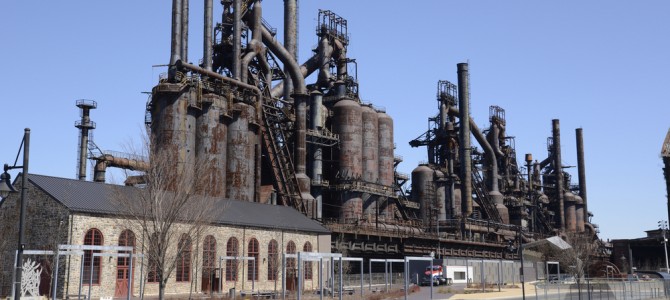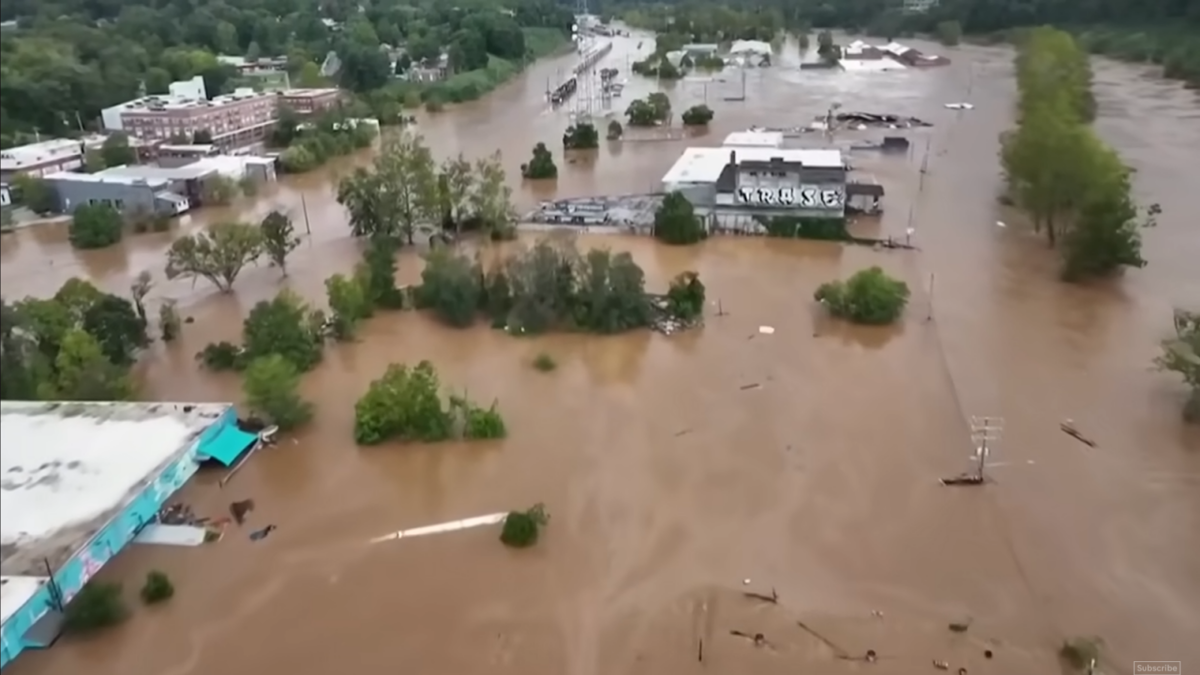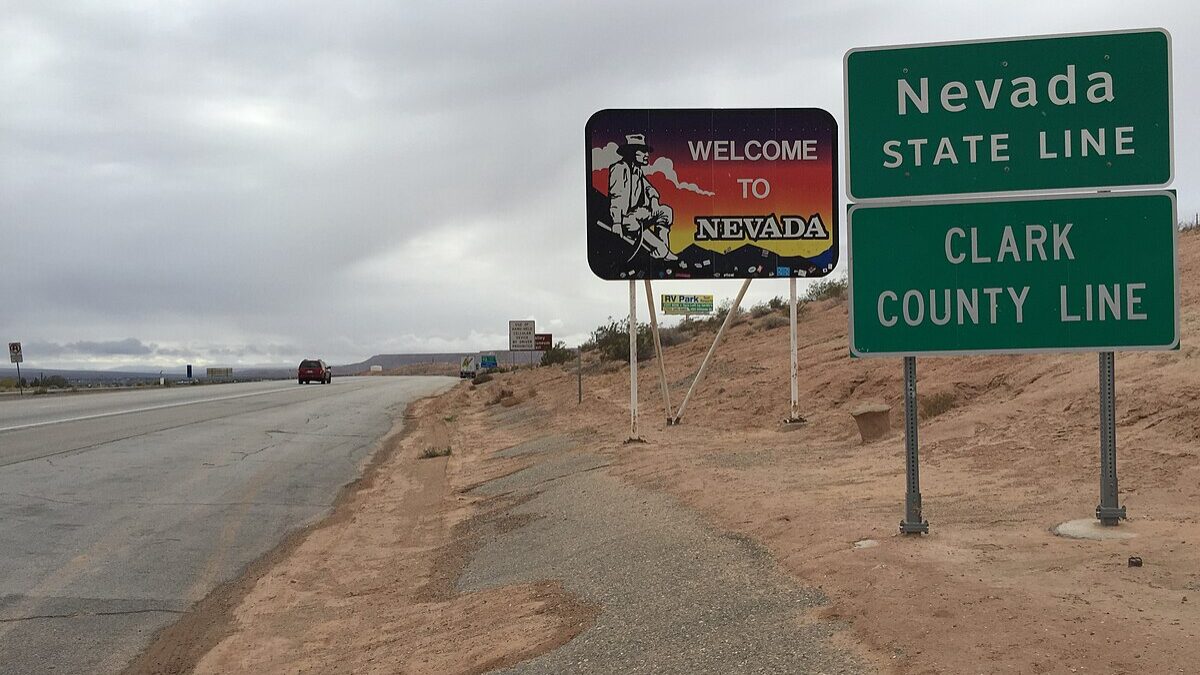
By most counts, Donald Trump will win a decisive victory in Pennsylvania’s Republican primary election today. Recent polls show him with double-digit leads in all five Northeast states voting on Tuesday. Pennsylvania is by far the largest of those, and its unique political and economic history has primed voters there to find favor with Trump’s major campaign talking points: immigration reform and trade protectionism.
Never mind that Trump’s half-baked policy proposals won’t restore the glory days of Pennsylvania’s coal and steel industries. Pennsylvanians know their state used to be prosperous in a way other states never were. A steel mill worker or a miner could support his family on a stable income. You could build a decent middle-class life. The cities were clean and thriving. Immigrants flocked to the state from all over the world. Philadelphia was the birthplace of the American Revolution, after all, and Pittsburgh became the industrial heart of the modern Republic.
So when Trump says he’s going to “Make America Great Again,” many voters in the Keystone State, especially working-class whites, think they know what that might look like. They hearken back to the days of King Coal and King Steel and think one way to recapture that dream is to go back to the days of trade protectionism. Impose tariffs on Chinese steel imports. Restore the unions. Rebuild the factories.
Steel Isn’t Coming Back To Pittsburgh
Protectionism has always run deep in Pennsylvania, a state built on the twin pillars of coal and steel. Even though decades of import quotas didn’t save Big Steel, Trump promised last week that when he’s president, “steel is coming back to Pittsburgh.” Those lines might also play well in places like Bethlehem, a small city in the Lehigh Valley just north of Philadelphia, where almost twenty years ago the fabled Bethlehem Steel Corp. shut down the last remaining section of what was once a vast, 1600-acre steel plant that employed more than 30,000 workers. Now it’s a casino.
Some people think the economy in places like Bethlehem is doing well enough to blunt Trump’s appeal. A recent Reuters report on Bethlehem, for example, noted how the city is better off than much of the rest of the state. New industrial parks filled with e-commerce companies are cropping up across the Lehigh Valley, and the old steel plant now serves as the backdrop for “a novel urban park that includes an arts center, a Public Broadcasting Service studio and a Sands casino resort with 2,400 employees.”
But the glory days of Bethlehem Steel will not return to the Lehigh Valley in the form of taxpayer-financed performing arts centers and giant casinos. Most of those casino gigs are low-paying service jobs—just like the Amazon warehouse jobs, which pay about $11 an hour and are often temporary. As for better-paying steel jobs, United States Steel Corp. announced earlier this month it’s laying off a quarter of its non-union workforce, including jobs in Pittsburgh. The realities of global commerce can’t just be waved away with a campaign promise. It will take more than tariffs and taxes to restore Pittsburgh and Bethlehem.
The Coal Belt’s Long History of Decline
But it’s understandable why Pennsylvanians would hope for a steel renaissance. Times are tough in much of the state, and have been for years. A decade ago, I worked as a reporter for the Wilkes-Barre Times Leader in the northeast corner of the state. The city sits in the heart of Pennsylvania’s former coal belt and in many ways it epitomizes the staggering, generations-long decline of coal-mining communities there. Mining jobs began drying up in Pennsylvania’s northern anthracite region during the Great Depression and a lot of them never came back. In 1959, the Knox Mine Disaster all but killed the coal industry in Pennsylvania when the Susquehanna River broke through and flooded a series of mine shafts, killing a dozen miners whose bodies were swallowed up in the whirlpool and never recovered.
King Coal left behind bleak communities marked by abandoned factories, empty houses, and vacant downtowns. The decline is all the more pronounced because some of these places were once centers of progress and industry. Scranton, just north of Wilkes-Barre, was dubbed “the Electric City” in the 1880s for installing the nation’s first electric streetcars. Wilkes-Barre earned the nickname “the Diamond City” when coal was discovered there in the mid-nineteenth century, drawing hundreds of thousands of immigrants to work the mines. For a while, these cities were the centers of industry and progress in the Northeast.
Not anymore. Many of these places are now stricken by poverty and plagued by heroin and opioid addiction. Hazelton, a former mining town of about 30,000 just south of Wilkes-Barre, was the setting for a 2014 New York Times Magazine piece about a 25-year-old heroin addict and mother of two. The woman worked as informant for a special drug task force sent by the state attorney general to disrupt the city’s active heroin trade. Hazleton sits at the intersection of two interstates and has long had a local reputation as a drug distribution hub and a place where users could find cheap heroin. A bag that costs $10 in Scranton goes for $3 on Hazleton’s Alter Street, “the kind of overt drug market linked to crime and social decay.” For all the heroin users in Hazleton, though, the town has no methadone clinic.
Trump’s Illegal Immigration Rhetoric Began In Pennsylvania
But for all its problems with drugs and crime and poverty, illegal immigration is how Hazleton made national headlines. Ten years ago, that’s where the hardline immigration rhetoric Trump has adopted would first appear. Then-Mayor Lou Barletta (now a congressman) announced he wanted to make Hazelton “the toughest place on illegal immigrants in America,” and promised to “get rid of the illegal people. It’s this simple: They must leave.” The city had seen a steady increase of legal and illegal immigrants, mostly from Mexico and the Dominican Republic, and Barletta believed—and still does—that they were sapping the city’s limited resources for public services. If Washington DC wouldn’t do anything about it, he was going to.
Because immigration falls under federal jurisdiction, the city couldn’t target illegals directly. Instead, the city would fine landlords and revoke business licenses of anyone caught doing business with illegal immigrants. The law, passed in 2006 and called the Illegal Immigration Relief Act, also made English the city’s official language and barred municipal employees from translating any document into another language without authorization. It was a law Trump could have written himself.
A flood of lawsuits and a national media firestorm soon followed, and a federal court eventually struck down the law as unconstitutional (the Supreme Court declined to hear an appeal in 2014). Barletta would go on to win a seat in Congress and, last month, he endorsed Trump. This week he’s been campaigning with Trump in Pennsylvania, and when I spoke to him by phone on Monday he said he feels an unspoken connection with Trump, who is going through what he went through in 2006, “the name-calling and criticism. I admire that he hasn’t backed down.”
Barletta believes his thwarted law paved the way for similar legislation in Arizona and the City of Fremont, Nebraska. Unlike with the City of Hazleton, both laws survived federal appellate court challenges. He says there is nothing good about illegal immigration, but that people shouldn’t mistake him for being anti-immigrant. “Standing up against illegal immigration is probably the most pro-immigrant thing you can do,” he says. What prompted him to take action ten years ago was the toll illegal immigration was taking at the local level, sapping limited public resources.
“In 2002, our budget for ESL was $500; five years later it was $1.5 million,” Barletta says. “It’s very apparent in a small town, the effect that illegal immigration can have. It breaks the back of small communities that are trying to update an aging infrastructure and balance a budget.” If the courts wouldn’t listen to Barletta in 2006, a significant portion of Trump supporters are listening to his message now.
Outrage and Hope
Alas, poor Hazleton is among those parts of the state that haven’t much benefitted from the fracking boom in the Marcellus Shale, which has brought good-paying oil and natural gas jobs to areas of the state that haven’t seen economic growth for decades. But the sharp drop in natural gas prices last year caused a rapid slowdown in fracking operations across the country. In Pennsylvania, the number of active rigs is now down to just 16 statewide from a high of 115 five years ago. What had seemed like a lifeline for some people has turned out, at least for now, to be illusory.
Before the fracking boom, during the 2008 primary season, like much of the country Pennsylvania was beginning to feel the effects of the recession. It couldn’t have been a worse time for then-candidate Barack Obama to make his infamous quip about “small towns in Pennsylvania,” where bitter people “cling to guns or religion.” But now, eight years later and in the middle of a presidential election marked by rancorous immigration and trade debates, it’s worth re-visiting Obama’s remark in full. He said:
You go into these small towns in Pennsylvania, and, like, a lot of small towns in the Midwest, the jobs have been gone now for 25 years and nothing’s replaced them. And they fell through the Clinton administration, and the Bush administration, and each successive administration has said that somehow these communities are gonna regenerate, and they have not. And it’s not surprising then they get bitter. They cling to guns or religion or antipathy toward people who aren’t like them or anti-immigrant sentiment or anti-trade sentiment as a way to explain their frustrations.
Coming from Obama, this was—and is—the height of condescension. But it’s hard not to think, at this remove, that he had a point. Not in the supercilious way he said it, but in his premise: small-town Pennsylvanians are frustrated. They were promised that their communities would regenerate. But they haven’t. If they’re bitter, it isn’t without cause. Not only were they left behind by the Clinton and Bush administrations, they are no better off under the Obama administration. Not only were they ignored, again, they were also mocked.
Trump can’t deliver on the hope he inspires; he can only stoke the rage.
Now, a new personage has appeared on the scene, someone who promises that this time we’ll bring steel back to Pittsburgh. This time, we’ll get rid of the illegals. We’ll make ourselves great again. You’ll see.
Trump comes to them as a kind of anti-Obama. Yes, you’ve been lied to and ignored. Yes, you are bitter. You have good cause. None of it is your fault. But take heart, we’ll turn it around.
They are listening. This is what they want to hear: outrage and hope all at once. The shame of it is that Trump can’t deliver on the hope he inspires; he can only stoke the rage.
For many, though, that will be enough. On Monday night in Wilkes-Barre, Trump held a rally at a 10,000-seat arena. As of Monday afternoon, 20,000 people had registered to attend. Barletta introduced Trump. Earlier on Monday, Barletta told me his view of immigration reform had changed since he came to Congress. He used to think it was a partisan thing: Democrats want reform because they want the Hispanic vote, Republicans don’t want reform because they want cheap labor.
He doesn’t think that anymore. “They all want the Hispanic vote. They all want cheap labor,” he said. “And the American people know exactly why we have this problem and they know exactly who caused it. And that’s why they’re supporting Donald Trump.”









